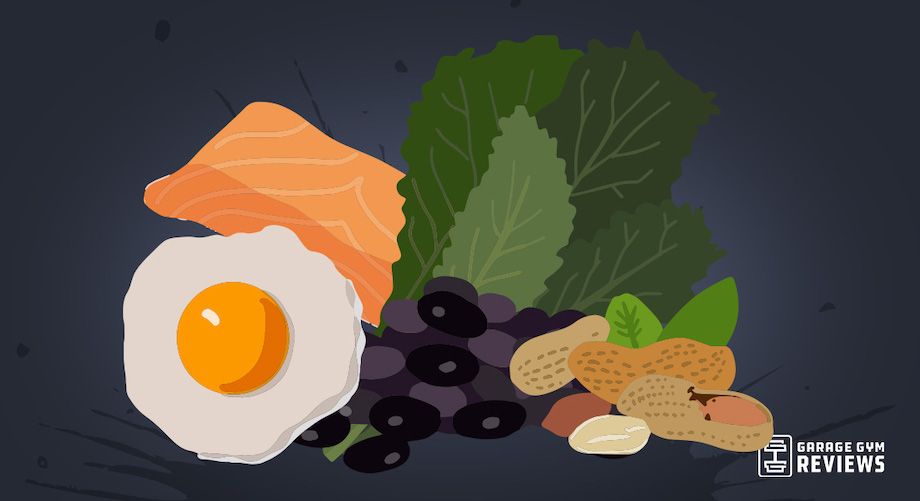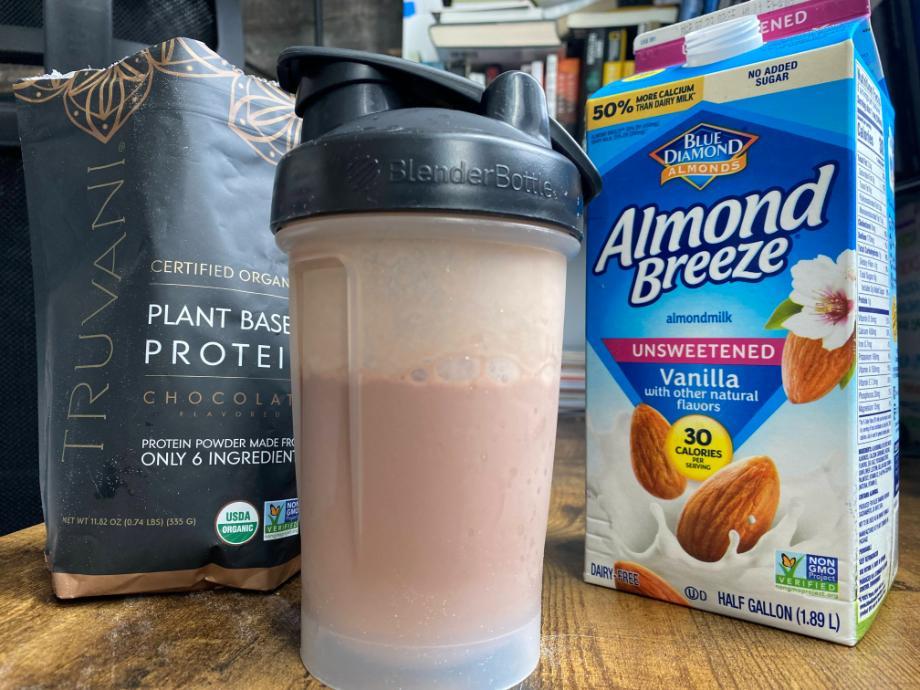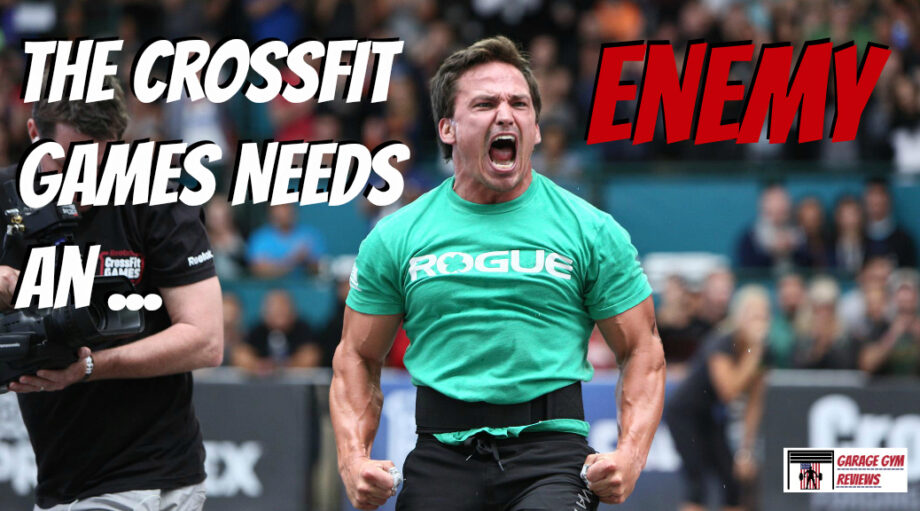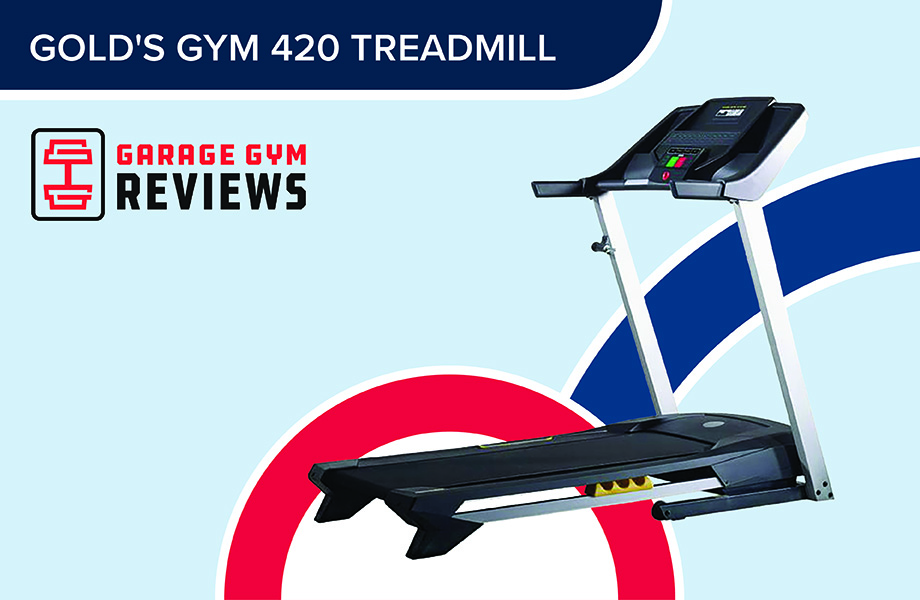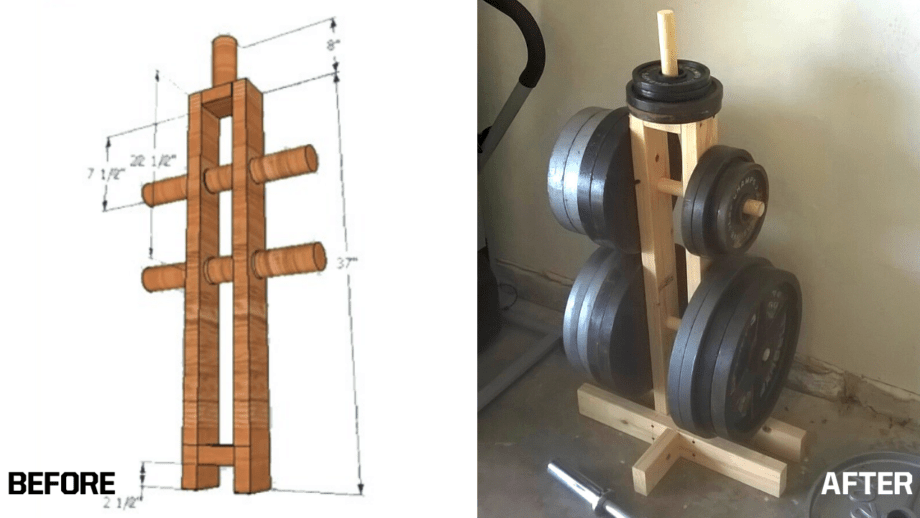You’ve likely heard the story since high school health class: Protein and amino acids are the building blocks of muscle. However, you could argue they’re the building blocks of, well, everything in the body. A good intake of protein shouldn’t just serve to assist with weight gain from skeletal muscle. Protein also makes up our immune system’s antibodies and neurotransmitters, helps manage hunger for weight loss, and maintains the integrity of our hair, skin, and nails.
RELATED: How Much Protein Do I Need?
Now, to be very clear, this article isn’t about telling you to eat all the protein you can at the expense of neglecting carbohydrates, fruits, and vegetables in your diet. A balanced diet that includes all of these foods is the best way to get in everything you need. However, how much protein you consume relative to everything else in your diet is something to be aware of as protein deficiencies are no joke, making it arguably the most important macronutrient for optimal body function.
Medical disclaimer: This article is intended for educational and informational purposes only. It is not intended as a substitute for medical advice. For health advice, contact a licensed healthcare provider.
What Causes Protein Deficiency?
The most obvious cause of protein deficiency is, well, a deficit in your protein intake. Not eating enough protein can absolutely cause a deficiency that comes with health problems and even a development of kwashiorkor, a condition that’s caused by severe protein deficiency, is quite common in developing countries.
In addition to poor food choices, low protein intake can also represent an aversion to animal proteins, such as an abrupt change to veganism without any conscious effort to consume enough plant-based proteins, such as lentils, other legumes, and quinoa.
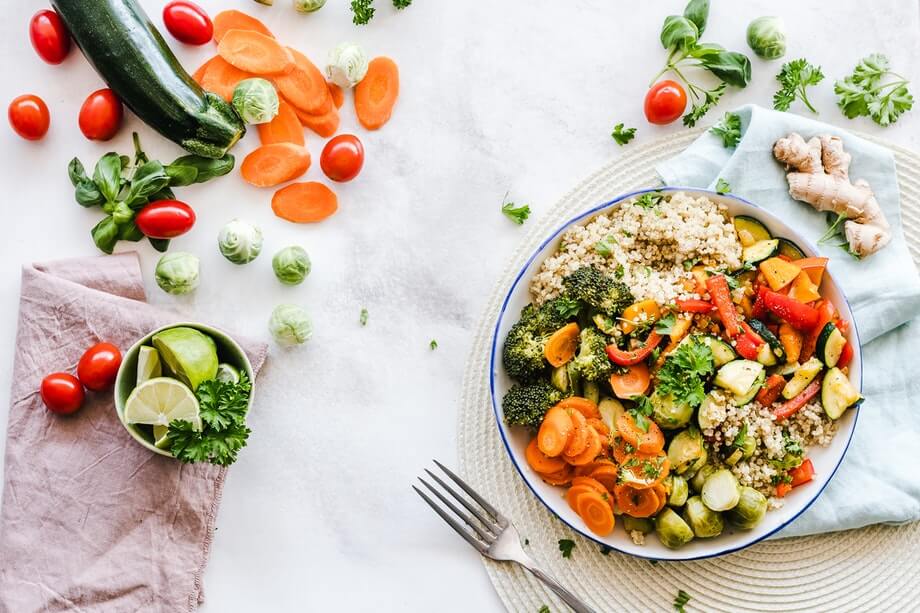
RELATED: Plant-Based Protein Powder Benefits
Protein deficiency can also be caused by issues with absorbing the protein you do eat. This could happen in those with pancreatic trauma, liver damage, kidney damage, bariatric surgery, celiac disease, and other inflammatory bowel disorders that prevent proper absorption of nutrients.
Aging also impacts dietary protein intake and absorption1. As you age, you start to lose enzymes like the intrinsic factor and proteases, which help your body break down and digest the food you eat. The aging population can also suffer from neurodegenerative disorders such as Alzheimer’s or dementia, which can cause malnutrition due to a simple lack of awareness that they need to eat enough food to survive.
RELATED: Protein Requirements By Age
What Are the Symptoms of Protein Deficiency?
Swelling
In people with severe protein deficiency, such as kwashiorkor, edema can manifest as swollen and puffy skin. Edema is the medical term for swelling and it occurs when your body doesn’t have enough albumin.
One of the proteins present in your blood is a protein called albumin and it has a lot of clinical significance to dietitians2, as it can be a signal when the body’s protein metabolism is out of whack if there is too much or not enough in circulation.
Having low levels of albumin is not ideal as the protein is responsible for maintaining the pressure required to keep your blood plasma in circulation. When not enough albumin is present, the plasma starts to “leak” into your body tissues. This can cause visible swelling which is usually seen in the hands, legs, and feet.
When it starts to build up in the abdominal cavity, it can cause bloating in the stomach area which is a signature symptom of kwashiorkor. However, you would need to have a very severe protein deficiency to experience any level of edema and it’s pretty uncommon with an American diet, even one that eliminates animal sources of protein.
RELATED: High-Protein Foods
Loss of Muscle Mass
Although protein can be found in nearly every part of the body, it probably won’t surprise you to find out that most of the body’s protein is found in the muscle mass.
To preserve more important tissues and body functions, the body takes protein from skeletal muscles when you don’t eat enough protein. When this happens, a loss of muscle mass3 occurs. The lower your intake, the more rapid the loss.
As you start to age, the ability to build muscle and maintain what you do have becomes more difficult, and this can start as early as the age of 30. One study done in older adults4 showed that those who got less than the recommended daily allowance of protein had the greatest loss of muscle mass.

RELATED: High-Protein Foods for Muscle Building
Lack of Growth In Children
As many of you fitness buffs are aware, protein plays an essential role in the growth of new tissues. This is why health professionals promote a higher intake of protein when the body is healing from injury or trauma, as the protein helps the body repair itself.
However, this growth of new tissue is most significant when you are a child or adolescent, as this is the period where your body is experiencing the most rapid period of growth and development. For this growth to go without a hitch, sufficient protein intake is vital6.
The first thing pediatric dietitians consider when they observe a child at a certain age whose height is not what it should be is malnutrition. This is why stunted growth7 is common in developing countries, due to the lack of access to protein sources.
Cracked, Pitted Nails
Nails are made up of a protein called keratin and, when protein intake is low, someone may notice deep grooves or pits in their nails8 that happen simply because they don’t have enough protein to maintain their integrity. Keep in mind that cracked, pitted nails can also be called by certain skin conditions and an iron deficiency, but protein deficiency is also a common cause.
Dry, Brittle Hair That Falls Out
A protein deficiency often impacts the skin, hair, and nails, which are largely made of keratin and collagen, which are both proteins. Flaky, cracking skin is not an uncommon symptom of an insufficient intake of protein. You may also see a thinning of the hair, dullness in the color of your hair, and even hair loss5.

I had a personal experience with this as my sister randomly decided to go vegan one year, had no idea how to plan her diet to ensure she got all the nutrients she needed, and called me within months to say her hair was falling out at an alarming rate. This happened to her because your hair does not get a blood supply, so the only thing keeping it together is a series of matrices of protein. If you don’t get enough protein from your diet, your body will let the hair go to reserve the body’s protein for more vital functions.
Infections
When the immune system is impaired, infections may be more likely to occur, which is a common symptom of severe protein deficiency9. What sets this apart from other symptoms on this list is that, if you have an infection that’s bad enough, you could still be at high risk even while eating the RDA of protein.
This is because the body’s protein demands increase exponentially when the body is in a state of trauma, such as after surgery, a severe injury, or illness. As mentioned, this happens because protein is needed to create new tissues for healing, but antibodies are also made up of protein. Research shows10 that older women’s immune response was reduced by following a low-protein diet for nine weeks.
Fatigue
Protein deficiency can cause you to lose muscle mass over time, reducing your strength and slowing your metabolism11. The neurotransmitters responsible for muscle contraction are made up of amino acids and, when muscles cannot contract properly, the body feels incredibly weak.

In addition to tiredness, it can also cause anemia, which is a condition that causes your cells to receive insufficient oxygen. This is likely because most foods that are high in iron also happen to be high-protein foods. This symptom is the most profound in those who are age 50 or older, who have a lower protein intake overall as well as lower levels of physical activity which results in reduced general strength.
RELATED: High-Protein Meals
How Can You Prevent Protein Deficiency?
The best way to prevent a protein deficiency? You guessed it: Keep your protein intake moderate to high. The American College of Sports Medicine12 recommends athletes consume 0.5 to 0.6 grams of protein for each pound of body weight (1.2 to 1.4 grams per kilogram), which is enough to maintain muscle mass.
For the general population, the recommended daily allowance of protein (RDA) is 0.8 grams of protein for every kilogram of body weight. So if you weigh 120 pounds, you’ll need about 44 grams of protein daily. However, many sports dietitians believe that even the general population could benefit from much higher protein requirements due to the benefit to weight loss and your health in general.
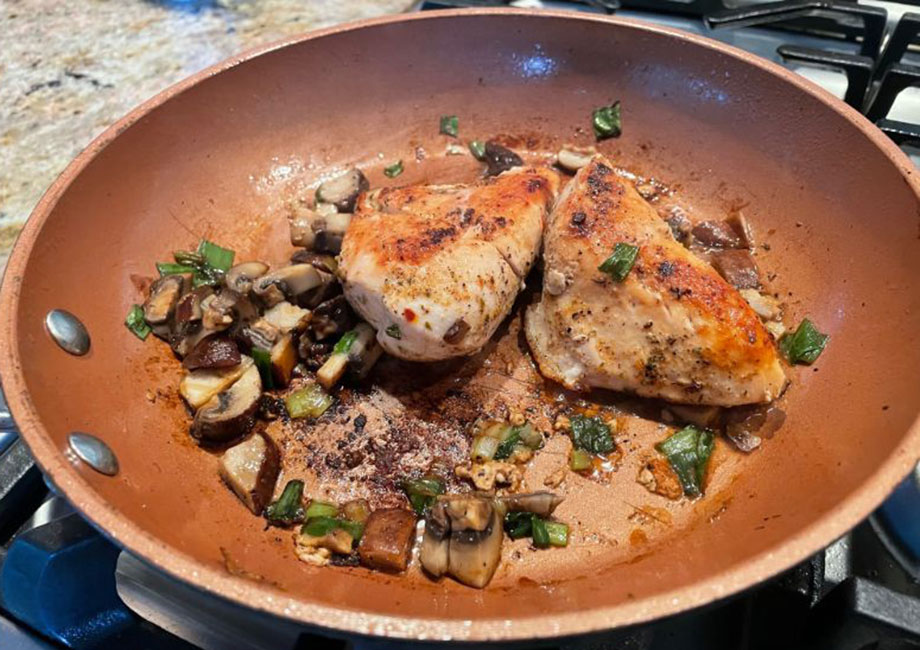
RELATED: High-Protein Foods List for Weight Loss
If you are pregnant, you’re probably already aware that you are growing an entire human. Thus, your body needs significantly higher protein requirements due to the rapid development of more, new tissue. The Institute of Medicine (IOM) recommends consuming 25 grams more protein daily in the second trimester of pregnancy.
If you’re vegetarian or vegan, make a conscious effort to include more plant-based sources of protein in every one of your meals. It can also be difficult to get in all of the essential amino acids, which can cause the health problems noted above along with making it much more difficult to build muscle. How much protein each person needs can vary widely depending on your current level of muscle mass, activity level, age, gender, and health state.
Taking advantage of the assistance of an expert nutritionist, such as a dietitian, can be a good way to ensure that your diet includes protein and iron, as well as all of the other nutrients you may be unintentionally eliminating from your diet. They can take a look at your current diet, your culinary skill, lifestyle, dietary preferences, and more to construct a diet plan to help you prevent protein deficiency and deficiency of other key nutrients.
What Is the Treatment for Protein Deficiency?
Protein consumption can be increased to treat a deficiency or low protein in your diet. Some common, protein-rich foods include:
- Lean beef
- Poultry
- Seafood
- Tofu
- Tempeh
- Eggs
- Beans
- Lentils
- Dairy
- Protein powder
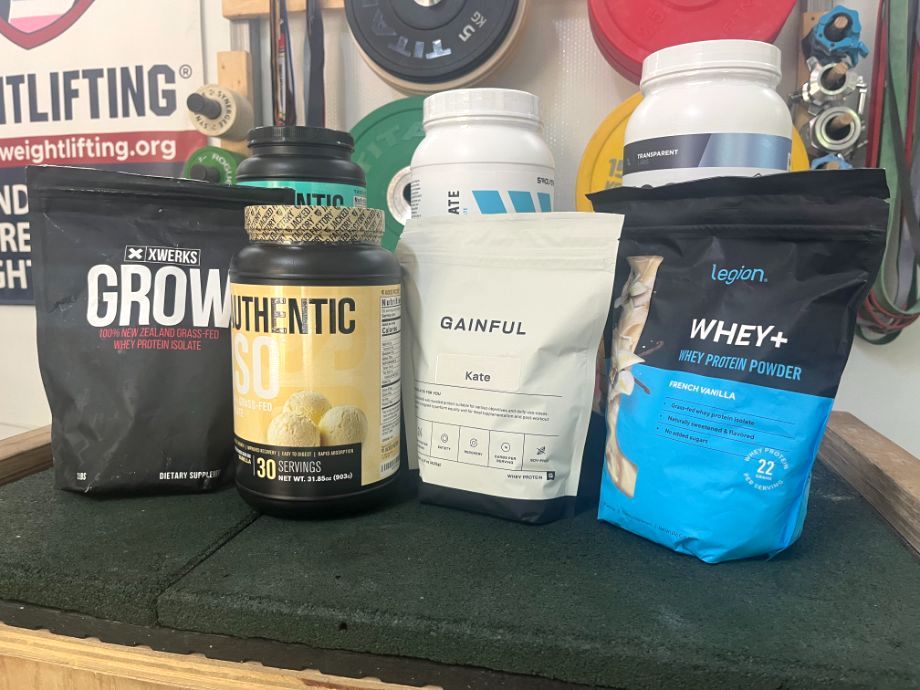
If you have a condition that is impacting your body’s ability to digest and absorb protein, your physician may prescribe medications such as supplement injections, steroids, antibiotics, or oral protein supplements. In critical care, if protein intake is extremely low and protein cannot be ingested safely or efficiently, health professionals will even install a feeding tube that will drip protein-rich formula directly into the digestive system.
Protein Deficiency: Final Thoughts
A lack of protein in the diet is pretty rare for people consuming the American diet. However, it can happen and has disastrous consequences. Without enough protein, weight gain from lean mass is pretty much impossible, physical activity feels much harder, and parts of your body (such as your hair and nails) will literally start falling apart. You also expose yourself to a higher risk of illness and infections.
If you suspect you have a lack of protein in your diet or you have symptoms of a deficiency, talk to a healthcare professional about potential underlying conditions or have a dietitian nutritionist look at your diet. Though protein is a critical macronutrient, a balanced diet that includes protein, carbs, fat, and fresh produce is still the healthiest way to eat.
If you are consuming a balanced diet, but struggle to get in enough protein from food, consider using protein supplements such as whey protein powder to have at the end of meals or between them. If you do not eat animal products, try protein sources that have all essential amino acids such as soy, tofu, tempeh, and lentils or other legumes.
Protein Deficiency: Q&A
What happens when your body is low in protein?
When your daily protein intake is not aligned with your body needs, a deficiency can occur. This can adversely affect your muscle mass, immune system, activity level, and even cause hair loss.
What might the 5 signs of a protein deficiency be?
If your protein needs are not being met, deficiency may show itself in one of five ways:
-Loss of muscle mass
-Lower immune function
-Stunted growth
-Fatigue
-Hair loss
What causes protein deficiency?
Not eating the amount of protein your body needs can cause a protein deficiency. This can also occur in older adults, those who have issues properly absorbing protein from their food, and those who exclusively eat plant foods.
References
- Dorner B, Friedrich EK, Posthauer ME; American Dietetic Association. Position of the American Dietetic Association: individualized nutrition approaches for older adults in health care communities [published correction appears in J Am Diet Assoc. 2010 Dec;110(12):1941]. J Am Diet Assoc. 2010;110(10):1549-1553
- Soeters PB, Wolfe RR, Shenkin A. Hypoalbuminemia: Pathogenesis and Clinical Significance. JPEN J Parenter Enteral Nutr. 2019;43(2):181-193. doi:10.1002/jpen.1451
- Huh Y, Son KY. Association between total protein intake and low muscle mass in Korean adults. BMC Geriatr. 2022;22(1):319. Published 2022 Apr 11. doi:10.1186/s12877-022-03019-1
- Ouyang Y, Huang F, Zhang X, et al. Association of Dietary Protein Intake with Muscle Mass in Elderly Chinese: A Cross-Sectional Study. Nutrients. 2022;14(23):5130. Published 2022 Dec 2. doi:10.3390/nu14235130
- Guo EL, Katta R. Diet and hair loss: effects of nutrient deficiency and supplement use. Dermatol Pract Concept. 2017;7(1):1-10. Published 2017 Jan 31. doi:10.5826/dpc.0701a01
- Arsenault JE, Brown KH. Effects of protein or amino-acid supplementation on the physical growth of young children in low-income countries. Nutr Rev. 2017;75(9):699-717. doi:10.1093/nutrit/nux027
- Endrinikapoulos A, Afifah DN, Mexitalia M, Andoyo R, Hatimah I, Nuryanto N. Study of the importance of protein needs for catch-up growth in Indonesian stunted children: a narrative review. SAGE Open Med. 2023;11:20503121231165562. Published 2023 Apr 17. doi:10.1177/20503121231165562
- Saeedi P, Shavandi A, Meredith-Jones K. Nail Properties and Bone Health: A Review. J Funct Biomater. 2018;9(2):31. Published 2018 Apr 23. doi:10.3390/jfb9020031
- Wang X, Yu Z, Zhou S, Shen S, Chen W. The Effect of a Compound Protein on Wound Healing and Nutritional Status. Evid Based Complement Alternat Med. 2022;2022:4231516. Published 2022 Mar 24. doi:10.1155/2022/4231516
- Li P, Yin YL, Li D, Kim SW, Wu G. Amino acids and immune function. Br J Nutr. 2007;98(2):237-252. doi:10.1017/S000711450769936X
- Azzolino D, Arosio B, Marzetti E, Calvani R, Cesari M. Nutritional Status as a Mediator of Fatigue and Its Underlying Mechanisms in Older People. Nutrients. 2020;12(2):444. Published 2020 Feb 10. doi:10.3390/nu12020444
- Thomas DT, Erdman KA, Burke LM. American College of Sports Medicine Joint Position Statement. Nutrition and Athletic Performance [published correction appears in Med Sci Sports Exerc. 2017 Jan;49(1):222]. Med Sci Sports Exerc. 2016;48(3):543-568. doi:10.1249/MSS.0000000000000852


